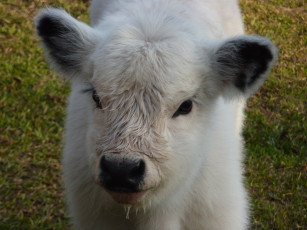It's not just what we know... it's how much we care!
Transcervical Insemination (TCI)
Transcervical insemination (TCI) is at the forefront of frozen semen insemination in bitches. TCI is non-invasive, quickly deposits semen in the same location as surgical AI, and generates equivalent conception and pregnancy rates.
We have a state-of-the-art transcervical endoscope which allows rapid and painless deposition of the semen inside the uterus, maximising conception rates.
What is Transcervical Insemination?
When mature eggs are ready for fertilisation, they are located in the oviduct next to the ovary. The sperm need to swim to the eggs for fertilisation to occur. Generally, the closer sperm is deposited to the eggs, the greater the likelihood of conception. It is widely accepted that placement of frozen semen must occur into the uterus for pregnancy to occur. TCI therefore requires our veterinarian to pass a catheter all the way through the cervix into the uterine horns. An endoscope (a long tube with a camera on the end) is used to navigate the folds of the vagina and visualise the cervical opening to allow passage of the catheter.
Advantages of Transcervical Insemination:
- No requirement for general anaesthesia
- Non-invasive and surgery-free
- Rapid
- Low stress and pain free
- Consecutive day inseminations possible
Another advantage to performing TCI using an endoscope is that it allows visualisation of the vaginal lining (‘vaginoscopy’). The appearance of the vaginal lining changes through the estrous cycle from pink and moist, to pale and crenulated. Therefore this provides us with accurate information in addition to progesterone levels and vaginal cytology, to increase confidence that ovulation is imminent.
Success Rates
TCI achieves comparable success rates to surgical insemination, however success with any insemination is affected by many factors including:
- Semen quality including sperm numbers (the minimum number of sperm recommended for intrauterine insemination is 150 million motile)
- Semen type (fresh, chilled, frozen)
- Male and female fertility
- Age and parity of the bitch at time of insemination
- Timing of insemination
Some of these factors are outside our control (e.g. age and parity of the bitch, inherent fertility of the dog and bitch and innate semen quality). However, we strive to optimise all other factors affecting success rates – namely the timing of insemination, semen handling and the insemination procedure itself.
Timing is particularly crucial to success for Transcervical Insemination. Some breeding facilities rely only on progesterone levels to guide insemination timing. At our hospital we use a combination of progesterone levels, vaginal cytology, vaginal endoscopy and sometimes ovarian follicle scans, to maximise the chances of success. Vaginal endoscopy becomes particularly important for exact timing of frozen semen insemination. Using an endoscope to visualise the vaginal wall for this purpose, is considered the gold standard in frozen insemination timing.
If you would like to enquire about Transcervical Insemination, please contact us on 02 6557 0000 or email us (admin@winghamvets.com.au)
